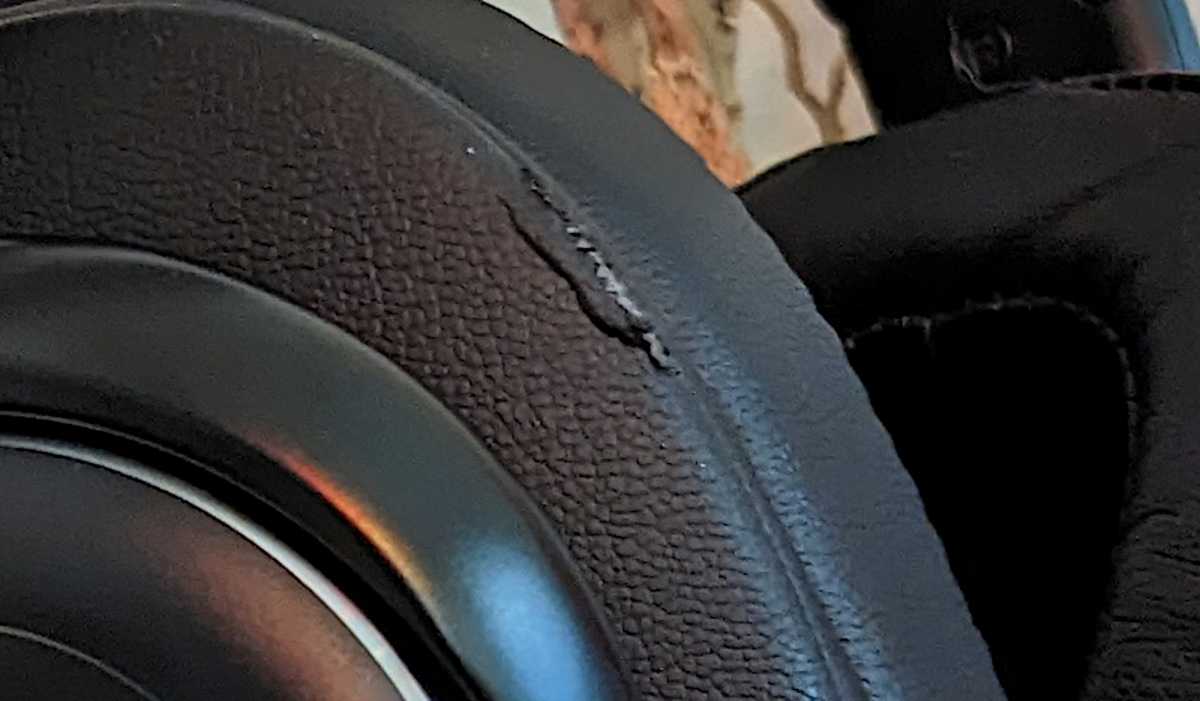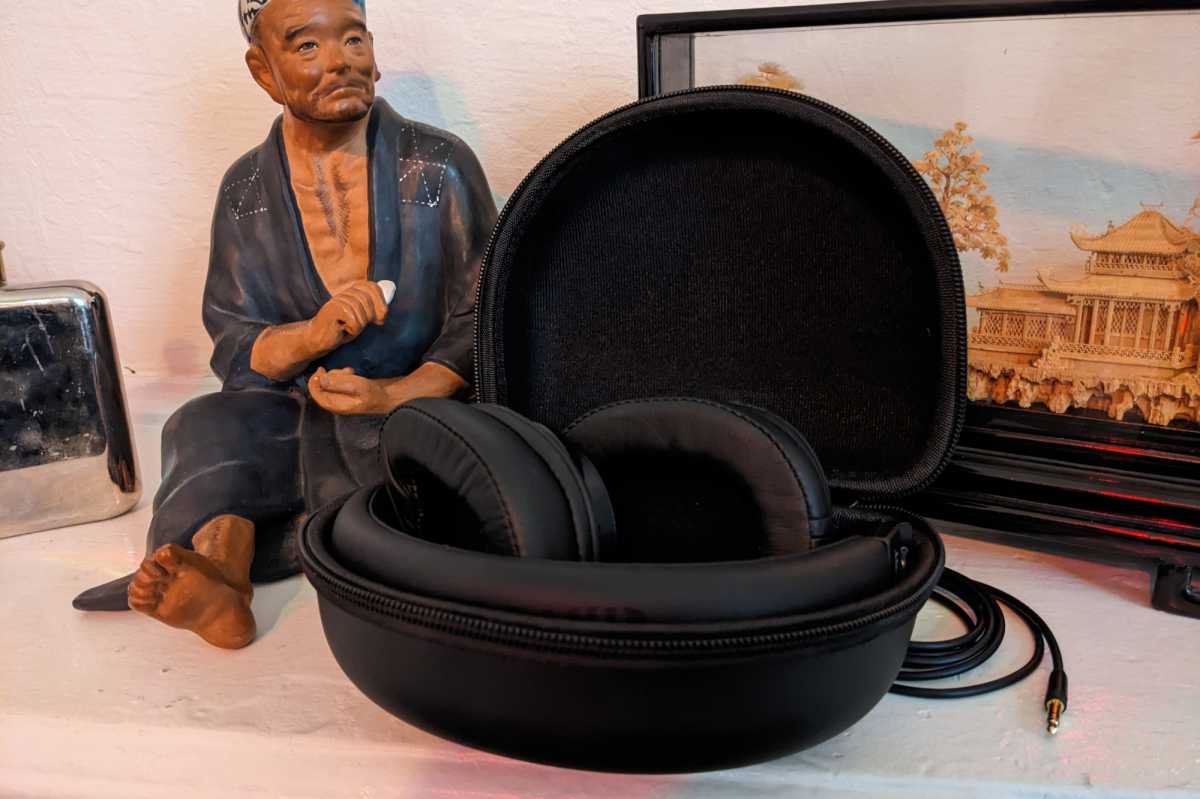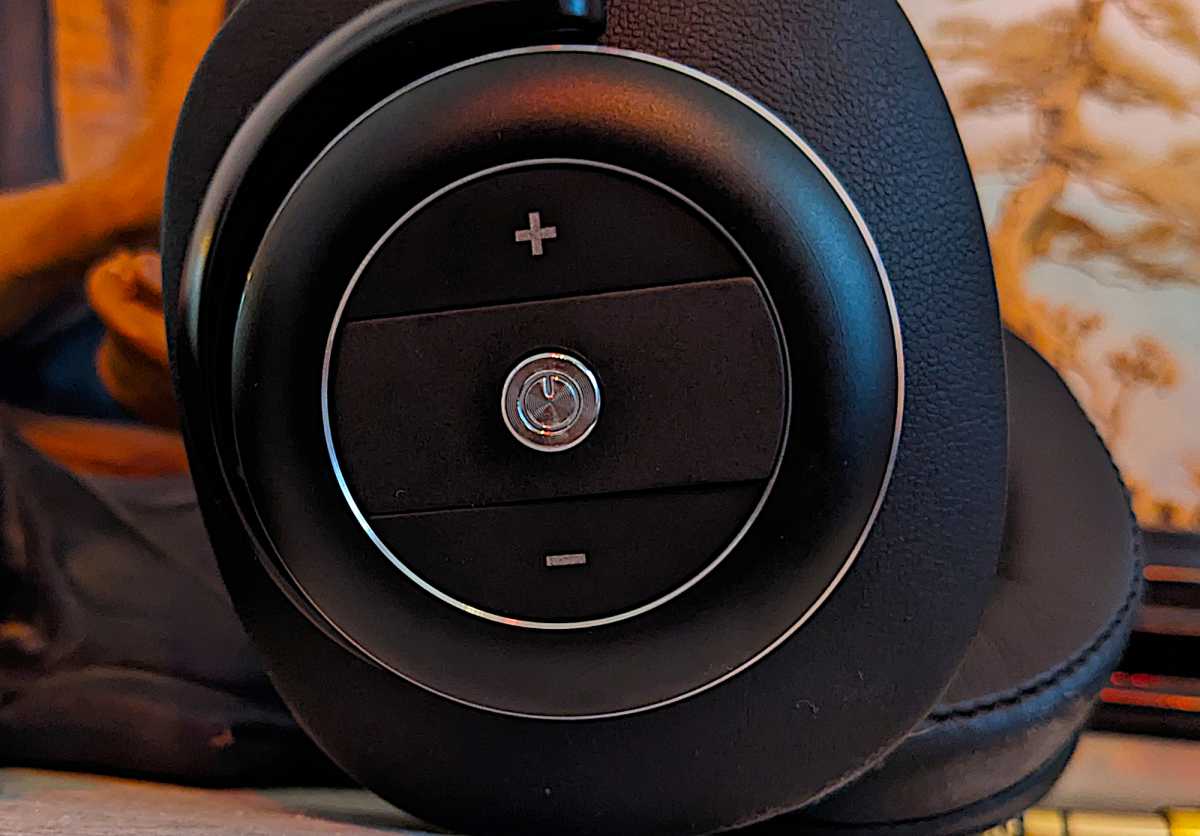Expert’s Rating
Pros
- Good sound with a flat reproduction curve
- Comfortable ear cups
- Attractive styling
- Up to 16 hours of listening time
Cons
- ANC alters the sound
- No app for EQ adjustments
- Headband needs more padding
- Minor fit and finish shortcomings
Our Verdict
We love the styling of the PreSonus Eris HD10BT, which have a flat frequency reproduction curve that’s good for home studio work. Enabling ANC, however, alters the sound noticeably and there’s no app to EQ the headset to taste.
Best Prices Today: PreSonus Eris HD10BT

$129.99
Out of the box, the $130 Presonus HD10BT Bluetooth headphone with active noise cancellation (ANC) impressed me with both its styling and its solid feel. I also appreciated its relatively flat frequency reproduction, which makes this headphone a better choice for home A/V studio use than many consumer cans.
On the other hand, PreSonus’ otherwise effective noise-cancellation tech appreciably alters the HD10BT’s sound, and there’s no app you can use to change its EQ.
The PreSonus Eris HD10BT doesn’t accentuate any particular frequency, and that’s what you want when you’re mixing audio tracks.
Design & build
The Eris HD10BT are over-ear, closed-back headphones with 40mm drivers and a mic on each ear cup to facilitate the ANC and phone calls. The headphones are styled in black and silver, and as I said, they look good out of the box.
This review is part of TechHive’s in-depth coverage of the best noise-cancelling headphones.
The left cup is home to the ANC switch, as well as the micro-USB charging port. The right cup has the up/down/call-answering buttons and the Bluetooth pairing button.
While I love the way the Eris HD10BT looks–with its sturdy, partly metal construction and the heft that comes with that material–I have some niggles with its fit and finish. While the texture of the material covering part of the back, outer portion of its earcups offers a nice tactile sensation and a good grip, it was already starting to abrade in two locations after just a couple of trips into the carrying case (check out the photo below).

I can only imagine what they would look life after a few months of anything less than immaculately delicate handling.
Also, the center panel with the Bluetooth pairing button was popping out a bit when I took the headphone out of its box. I pressed it back and it remained in place, but the fitment of these plastic parts on both cups could be more precise.
The HD10BT ship with a straight 4-foot 3.5mm cable, a 3.5mm-to-1/4-inch adapter, a USB-A to micro-USB charging cable, and a zippered hardshell case.
Audio and active noise-cancelling quality
The best way to describe the Eris HD10BT’s sound (sans ANC, that is) is flat and accurate; i.e., it doesn’t accentuate any particular frequency, including the high-end or the bass. And that’s what you want when you’re mixing audio tracks–minimal coloration by your playback equipment.
The mid-range and field definition was spot on. I had no problem picking instruments or parts out from the mix; another plus for home studio use. The HD10BT also handle volume well, not overly changing timbre as you crank things up.
But for recreational listening, I was quickly wishing for an app with EQ capabilities, as my older ears like a bit more sparkle. Many music apps have their own EQ, so if the one you use has that feature, you won’t mind that PreSonus doesn’t provide its own.

PreSonus’s active noise cancellation is very effective at taming environmental sound pollution; however, it does effect the EQ. That’s not something you want from a professional headphone. There’s a drop-off in the high-end–as with many middle-of-the-road ANC designs, but it’s very slight. Quite unusually, activating ANC also delivered a slight boost in the lower registers.
So, forget what I said about flat response the moment your flip this headphone’s ANC switch to the on position. That’s not to say the Eris HD10BT sounds bad with active noise cancellation engaged, it’s just not as balanced or precise in its frequency reproduction. And I tested it with both Bluetooth and connected to my source with a cable.
Presonus claims up to 16 hours of battery life, which typically means without ANC engaged. With ANC on, the headphone had about 70 percent battery life remaining after two hours of listening, so figure a bit less than what PreSonus thinks It will deliver.
Comfort level
My first impression of the Eris HD10BT was that it was one of the more comfortable over-ear headphones I’ve tried. The ear cups are soft, but not squishy, and they’re deep enough to keep my auricles from bottoming out on the speaker grill. Good job there.
After a few hours, however, I found myself wishing for a bit more padding on the headband. It’s a two-rail design, which is sturdy, but it puts all the pressure in two smaller areas. The metal in the HD10BT makes it rather weighty for its class–0.9 pounds–and that weight lead to pressure forming on the top of my head.

To compensate, I found myself moving the pressure point by rotating the headband slightly backward and then forward. After a time, I added some external padding to the headband. You might not be as sensitive.
Should you buy the PreSonus Eris HD10BT?
Despite its flaws, I enjoyed my time with the PreSonus Eris HD10BT. It’s a handsome headphone that sounds decent, cancels noise well, and is relatively affordable.
But I would be remiss if I didn’t mention that the Anker Space Q35 are a better headphone for casual listening–and they’re a bit less coin.




